
The Edinburgh School of Poets
2014 Yearbook
Tessa Ransford founded The School of Poets in response to her recognition that in the early eighties there was no group where Scottish Poets could meet and share their work. Originally membership was by invitation but is now open to any interested writers. The underlying ethos of The School of Poets is that nobody teaches and everybody learns. Meetings are monthly except during August and December. The School is flourishing and has a dedicated core membership where ongoing friendships have formed.
Tessa Ransford, one of the best-
For Poets of the first School of Poets, 1981
Mutilated, mangled, lacerated,
my composition had been broken up.
The kind of execution perpetrated
on Cicero by that Caesarian pup.
Axe my gesturing hands, my very arms!
Van Gogh sliced off his ear, and I am less
than he . . . Our life-
us further? Love has nothing to confess.
Now unexpectedly the Muse has sent
me comforters, and several:
poets, whose craftsmanship and wise intent
restore my form and my material.
Sappho had never Royalties like these:
Two Robins, Jenny, John, Rose, Anne, Elise.
This poem was included in ‘Fools and Angels’ (published by Ramsay Head Press, 1983) as part of a sonnet sequence called ‘Inch Space of the Heart’.
*Anne Gwilt, Robin Bell, Robin Alexander, John Bate, Jenny Robertson. Rosemary Hector, Elise Mackay.
Anne is an Irish poet living and working in Scotland. She has enjoyed teaching throughout Britain for many years but the fun of being a granny trumps everything. She likes to sing, sew, potter in a wild garden, wander regularly, drink gallons of tea and enjoy an interesting whisk(e)y. Photography and calligraphy are abiding interests. Anne has kept an eye on the School of Poets for several years, is a veteran of Slam poetry and reads and performs her work regularly throughout Scotland.
I am the waiting-
in the wings of expectation
knowing exactly what she will say
about the perfumes of Arabia
with her small hands steeped
in that overweening power of decay
which haunts her walking-
And in a moment now the curtain
will guillotine the well-
glide of Birnham wood as our director
gaunt and pale as Banquo’s ghost
tells us of a cavalcade in Dallas.
The regicide of other potent dreams.
Kate Murray
Thirteen years in Edinburgh. Before that, a wandering existence, living and working in Sheffield, Regensburg, Belfast, Cookstown, Folkestone, Aix-
Gritstone Virgin
You lack irregularity:
no mole, wrinkle, wen, pockmark,
pimple, crevice nor crater.
How to get a hold on you?
My fingers are practised in pry
and pinch and pull on pinnacle
pillar and pike in Buchaille
Borrowdale, Bwlch;
but for you esoteric techniques
solicit full splayed-
I yield my palm
to the small stings
of a myriad
grit kisses:each one confirms
our full engagement.
‘Push! Go on! I’m holding you.
Counterpoise, countercharm me in
pressured in-
propulsion. Go on!
Give me your foot …
Yes! That’s good!
And it is. This sleight
of hand and limb
in frictioned weightless
upward rising
to the chimney-
back to wall buttressed:
legs bridge,
feet flat,
hands brace, their heels strong,
shift taut buttocks off… up… on,
walk feet up rock in parallel…
… and I, am out
am balanced
Saltirewise on your rough
most subtle features.
Angus was born in Glasgow, grew up in Galloway, and was educated in Edinburgh and Dundee. He has had a career in education which included 25 years as an international school teacher and administrator in Spain, China, Nepal, Indonesia and Zimbabwe. Since winning his school poetry prize in his youth, he has had an abiding interest in poetry and his poems have appeared in various publications. He returned to Edinburgh in 2008 and spends his time writing, doing voluntary work, and addressing conferences, seminars and symposiums about the patient experience of cancer using his poetry as an aid to communication. He has recently published a collection of poems, Lights in the
When the voice cried
out of the wilderness
I prepared myself a way,
accepting how things could be
living on locusts and wild honey,
straightened some edges,
worked the roughness
as conditions allowed
down narrow trails to the waterside.
And, yes, I was ready,
eager, even,
in light of the inevitable,
to make the passage to the other shore,
biding my time watching the river,
hearing it flow.
Nothing transpired but continuation, more
of the same:
bee-
now and again some new revelation,
seekers arriving looking for bread.
It appeared like reprieve or a restoration,
the breath of a blessing,
but still that voice calling
and a body detained,
sustained for its end.
Another will come now,
fiercer than the last;
and I fear it,
I fear
I will not be ready
as I was then
to pass through pain
for the trick of a chance
in a promise given:
the price of its dance.
My lineage involves England and Australia: I was born in New Zealand but left after receiving my education. I travelled for some years, primarily in Asia, then returned to New Zealand for further training to work in Bangladesh. I was there for a decade, followed by a shorter time in the Middle East, then Scotland. I began writing as a means on reflecting on my daily experiences. I still write, although perhaps now it is memories that I am digesting. It still feels like fun so I continue doing it.
The valley
funnels winds
that trouble trees,
surface water ruffles
as the stream falls away
to a pebble-
Stones slip
and clatter underfoot
as I follow the
rock-
their smoothed shapes
chatter into place:
glancing back along the bay,
nothing seems changed.
The tide chants,
cicadas sing into
the calm lee
of bastion hills.
My walking slows,
breathing stills.
Out to sea,
currents writhe toward a
white-
Overhead,
gusts tear clouds to shrouds
that disintegrate into sky.
Born in the north of Scotland he has lived and worked in Glasgow for most of his life. He has a life-
imagine it
a living creature that's never seen the sun
not till the day it's caught
hauled to the surface from the spit of the sea
and dropped
into that white
plastic
box
I keep my lobsters hidden all the day
under a sack cloth soaked
in salt water
it separates each one for they
always end up fighting with themselves
tearing one and other
limb from limb
they’re kept in cellular cages out in the bay
sunk back into the current
at the end of each day
it keeps their meat
fresh
it's amazing how long they can last
till McCaskill comes
at the end of the week
to lift the catch
on stormy days
we always repair the nylon mesh
of our creels together chatting
about the summer’s take
in the smokey half-
of the shed by the swell
we lost
my brother last year
he was out for prawns
way beyond the grey headland
where the waves
and the clouds
and the rain
were a bitter pay
Kenny Campbell found the body
the slight
orange flair
of the oil-
was a marker
of sorts
buoyed up
but face down
as they always are
head bowed into the tide
the lungs
trapping the last gasp of air
they say
his blue eyes
a watery stare
I think of him
every day.
I was an art teacher and continue to paint, but at some point saw that drawing and painting in a fairly traditional way, however earnest, were not going to deliver some realisation of what occupied my mind, and that previous attempts at a modernist “breakthrough” were spurious. Having always read poetry, especially Browning, Hardy, Auden, Larkin et al. in the new century I started to write. A workshop by Ken Cockburn and a Peebles writers’ group tutored by Magi Gibson encouraged me. I have attended the School of Poets for about eight years.
On an annotated volume of Yeats
Marginalia engross, as the dust rolls under beds
generating swirls of plasmic greyness hardly spoken of.
These pencilled exclamations, queries, notes, are tokens of concurrencies, contraries or codicils to the page first read. Underlinings, ruled, free or wavy, or wired together leading the eye straight down the gist across a drift of print
and passages slashed open or fished in brackets hint
at sly, perverse or deconstructed reading.
Long waiting for their maker to return
mere marks stir with sui generis belligerence,
active to excogitate a reader, him or her
by quickened legibility, epiphenomenal intelligence
to challenge and to clarify, annotations teach and learn.
As dust rollicks under beds, books swill indwelling sense.
And I will take these books, take them to a room,
a low-
I will have some damp there, rising from below,
damp and the draughts creep, but no dry dust for the broom.
Nine great books will I have there, alive with pencilling
that hacks deep into the text there, under the sea wind’s moan
and jangles together voices, yours, Yeats, and my own.
Margialia will arise there, beyond all cancelling.
I will not see the sun set for all its backwash of valium.
I will face to the east, by mile measuring mast,
cooled and tranced by the silvered enamelling
sea that holds the light of the day now past,
enough just to trace the faint marginalium
and draw myself into the poem at last.
This poem ventures the singular of marginalia, marginalium, not in the dictionary.
Raised in a farming community in South Gloucestershire. Studied Chemistry and taught biological sciences in Glasgow University from 1968-
That night there was a heavy bomb-
Did we sleep well through it?
That is not recalled.
but on our Sunday stroll
with Aunts and Uncles
twice as tall, who said
‘Just mind the edge now!’
walked the fields around the bomb-
not too deep, but oddly conical and clean
and, while nobody remarked on this;
one was yellow
and one was blue
and one the colour of deep dug earth.
Would and might and this must be;
the pipe, the flute, the harp, the lute
and did these knights come
one, two, three?
and early learnt things,
false or true?
But now there’s no-
Maurice lives and works in Edinburgh, where he first attended the School of Poets in 2003 around the time when he began to write poetry (again). Poets he often returns to are Eliot, Neruda, Yevtushenko and Darwish, and always look forward to new work by Duffy, Armitage and Shapcott.
Silk topped heads on ermine shoulders
judging silently as a court of owls,
with cherubim mooning from on high,
a Virgin of Copacabana by the bed.
He waits for the Sister to leave
his midnight milk (which he carefully sniffs),
closing the heavy mahogany door
completing the inner sanctum.
He takes out the red leather shoes,
a hidden, well polished pair,
that everyone thinks he never wears.
He lays a disc on the waiting tongue,
Tango Nuevo accordion plays,
if the Swiss Guard hears he will not say.
Remembering a dance of Buenos Aries,
in this city of piazzas and parishes,
where Piazzola cut Libertango.
Dancing a memory of Buenos Aries,
that city of theatres and barrios,
bigger than the State he runs.
He dances a little,
nimble on the marble,
his age leaving him
breathing a little bandoneón,
thinking of Maria de Buenos Aries
as the ermine owls sing
Balada para un loco.
Since retiring Finola Scott has enjoyed writing everything from poems to articles, the intellectual stimulation being better than Suduko. Recently moved to Edinburgh to be with her family & new grandchild, she is grateful for the warm welcome the writing community have given.
When I touched it
base metal
deep in the drawer,
I knew it -
a tool that built brochs and battlements.
In the string’s strands I smelt
Dad’s sweet sweat,
stood beside him again
as wallpaper & brick were ruled
with ease and ancient science.
He’d unravel the tawny twine
from the dull weight
that held the cord sure,
then
drop.
It swung out
Tic
Toc
Tic
down
to a calm
stop.
He smiled and explained gravity.
I listened and nibbled Newton’s apple.
Our home safe in his hands,
his judgement always true.
I was born and raised in Dumfries and Galloway. I came to study Modern Languages at Edinburgh University and apart from a year in Germany have lived in the capital ever since. For over twenty years I taught languages in Edinburgh Schools and worked in the Scottish Poetry Library for eight years. In 2004 I graduated from Glasgow University with an M Phil in Creative Writing. I now spend my time writing and tutoring.
The air smells earthy,
sunlight sings crystals over morning grass.
A wedge of ebony descends, white bib freshly laundered.
He is lord of the lawn, pecking his pick of grubs
until the resident bully squirrels up behind,
eyes on fire, with a look that says,
‘you’ve pinched my patch.’
I watch from the window,
rush out to intervene,
play the go-
feathers and fur litter my pristine green.
They’ve seen me and scarper.
Snowdrops nod scalloped heads.
Peace reigns.
Has enjoyed poetry since childhood, encouraged by both parents especially:-
Studied History at University and started to write poetry after her children had grown up. She is primarily a nature poet.
There is inspiration for poetry to be found all around; from simple everyday "things" to more introverted feelings and grand sweeps of outside life including the splendid, exhilarating feeling when standing on high points of hills or mountains and drinking in the views, as well as, on occasion, more mundane things such as T.V. Advertisements’.
About Poetry Concerning Gold and Angels
I saw the title gold and angels in the Radio Times.
It seemed a lovely title for a poem;
Very poetic, not prosaic at all.
Surely a poem about gold and angels could not be just
Down to earth, no matter what the radio programme was like.
Would I need my gold tipped pen to write one.
I thought about it for a while,
And for some unknown reason pushed it all aside
To await some other day
I was born in New Delhi in 1967 and have lived in Scotland and Iraq. I am an artist working at St Margaret’s House, Edinburgh. I write in order to write and am deeply interested in things, especially small, intricate, natural ones. My most recent publication is in the FWS anthology ‘Making Waves’.
This house will not let go.
Fables and song will not part,
held forever in ice and snow.
The western poplars orange glow
makes purple shadows on the heart.
This house will not let go.
Weeping ash, its ball gown flow
draws with twigs its gradient art,
held forever in ice and snow.
The burn waltzes quick, quick, slow;
dark woods and lawn step apart.
This house will not let go.
Snowdrops come, an early show,
burst Time’s invisible chart,
held forever in ice and snow.
These things that I have come to know,
winter, long after spring can start.
This house will not let go,
held forever in ice and snow.
Born in Lisbon. Studied economics, languages and classics in Lisbon and later in London. Married and domiciled in Edinburgh. A nature poet with a special affinity for the sea. she has been a long-
Lua deslizando,
enche com a noite
ondas desertas.
De manhã,
os pombos que pousam
são gaivotas,
procurando comida.
Passos apressados,
gentes em correria,
barcos que passam
nas superfícies polidas.
Corvos pendurados,
gravados nas velas,
na espuma estática,
branca da cidade.
E nessas ondas,
fixas, sólidas,
só o vento, as nuvens,
o sol, as sombras são os flύidos.
Originally from Dumfries and Galloway, I have for many years made my home in Edinburgh. My working life was spent teaching young children and encouraging young writers. In common with children, I see the world in vivid pictures and try to create strong images in my poems.
Unopened snowdrops
are Bride’s candles
pointing unflickering flames
towards the light
before coyly bowing heads.
Candlemas has washed sky
with that brightness
that coaxes first primulas
from green sheaths
to lie stemless on bare earth
like scattered jewels.
A tentative flower
of wild strawberry
is a small white star
glowing among brown
and wizened berries.
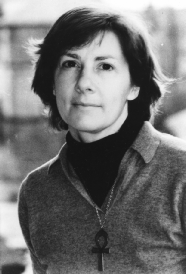
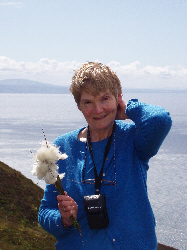
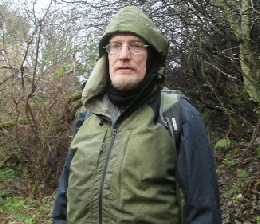
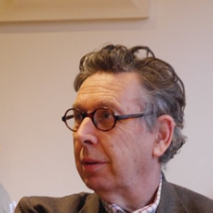
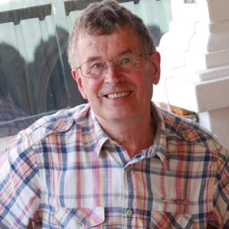
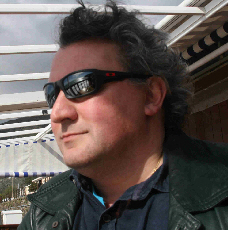
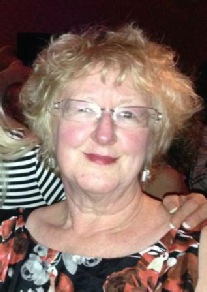
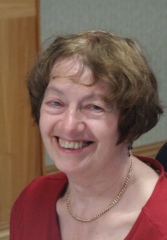
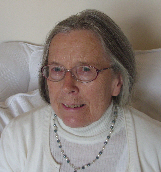
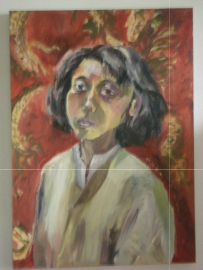
Stone Waves
The gliding moon,
fills deserted waves
with the night.
By morning,
pigeons landing
are seagulls
looking for food.
Rushing footsteps,
people running,
boats that pass by
on polished surfaces.
Ravens perched,
engraved on sails,
on the white
static foam of the city.
And, of these
fixed, solid waves,
only the wind, the clouds,
the sun, the shadow
s are fluid.
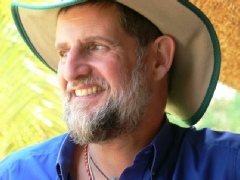
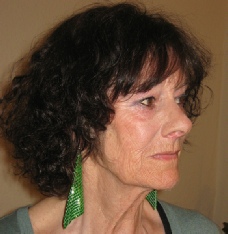
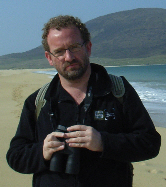
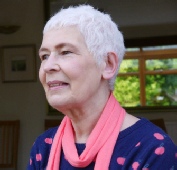
- Placeholder